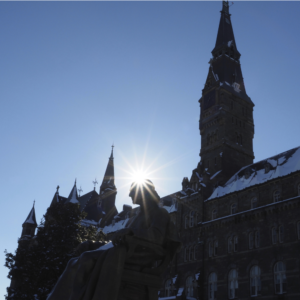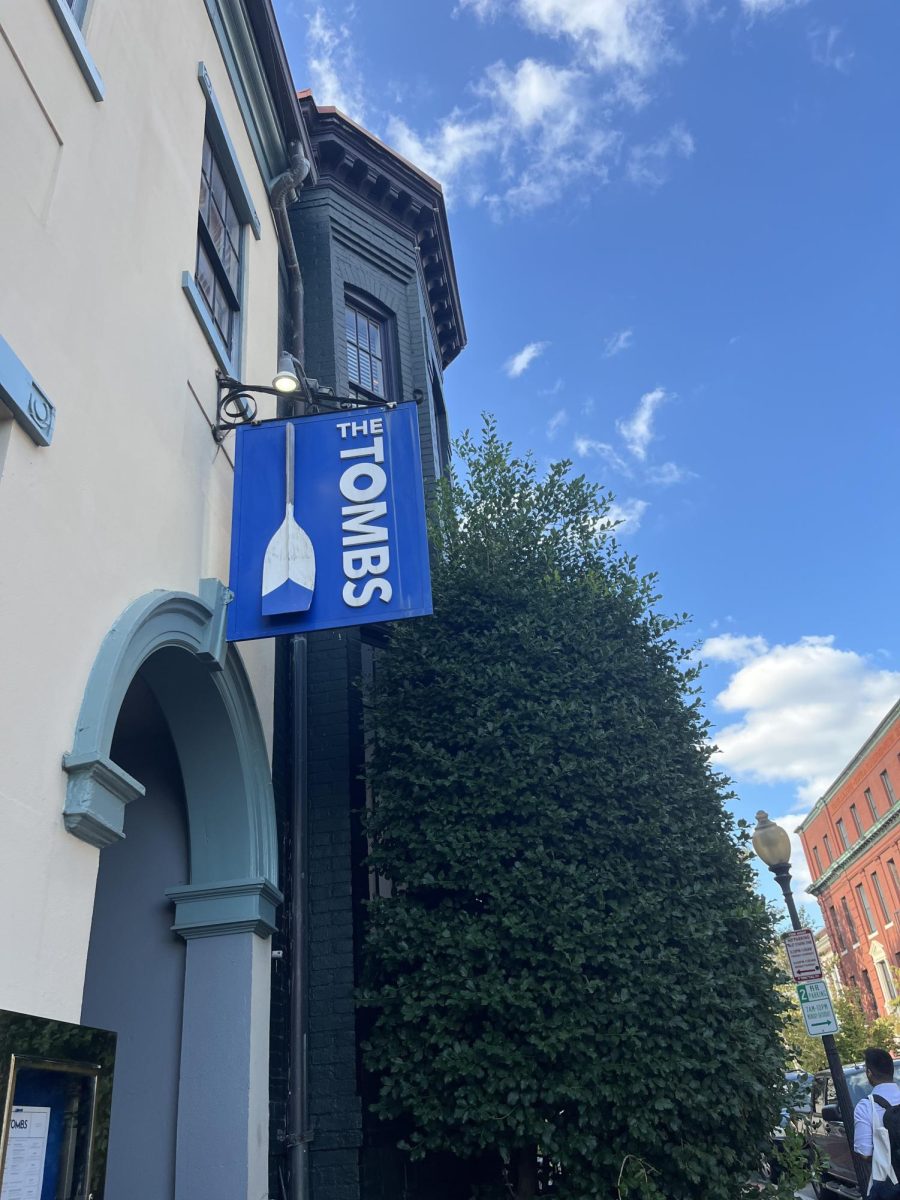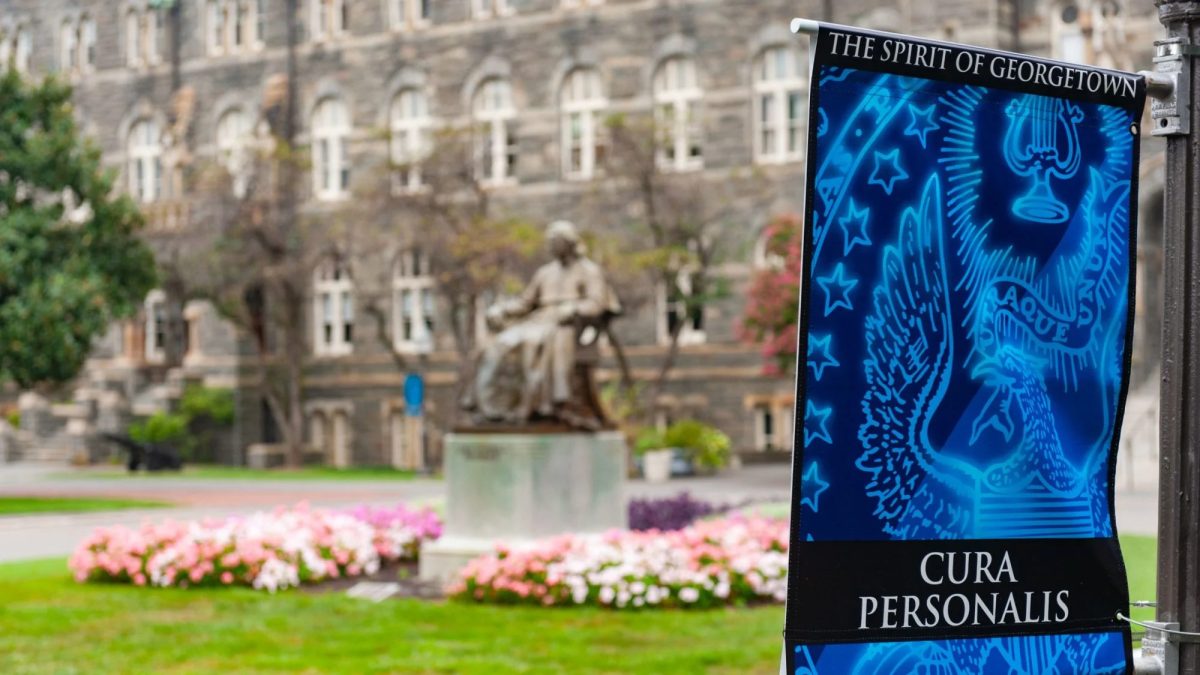The Georgetown University Student Association (GUSA) Senate passed 10 bills calling on the university to improve on-campus study spaces and reform GUSA’s internal processes at its meeting Feb. 9.
The senate passed four bills urging the university to address study conditions on campus, including by adding extra tables to the Healey Family Student Center (HFSC) prior to final exam study days, increasing the number of university-offered pet therapy sessions and purchasing standing desks for Lauinger Library and more side tables for the HFSC couches. The senate also passed two bylaw amendments clarifying committee attendance requirements for senators and setting the baseline Student Activities Budget, the budget of GUSA’s executive, at $7,500 for incoming administrations.

Senator Nicolas Santiago (CAS ’27), who introduced the bill to schedule pet therapy visits at Lau and the HFSC at least three times per semester, said the bill would build upon an existing university initiative to promote student wellbeing.
“Pet therapy has been proven to be very beneficial,” Santiago said at the meeting. “Like I mentioned, we’ve already done something like this, other universities have done things like this, so this bill would essentially recommend that this pet therapy be expanded.”
Speaker Rhea Iyer (CAS ’26) introduced a bill to explicitly guarantee incoming GUSA administrations $7,500 for the Student Activities Budget. Under the bill, the executive must then present a budget proposal to the Financial Appropriations Committee in the Spring to request additional funds for the remainder of their term.
The GUSA budget process occurs for a future fiscal year, but new administrations are sworn in at the beginning of the calendar year. As a result, the outgoing GUSA executive branch has traditionally set the initial funding for its successor. It has been expected to leave half, or around $10,000 to the incoming administration, though no bylaw had set a required amount.
Senator Tina Solki (MSB, SFS ’26) said the proposed bill would prevent outgoing administrations from leaving their successors insufficient budgetary funding.
“The way that we just left it for one executive to leave some amount of money for the incoming executive has a lot of inherent problems, and I would prefer to guarantee a certain amount of funding,” Solki said at the meeting.
President Ethan Henshaw (CAS ’26) said he agreed with formalizing the procedure but did not support the bill, preferring the senate maintain the $10,000 baseline for the next administration.
“I would like it to be kept at 10,000, just because I think 10,000 is a good place to be,” Henshaw said at the meeting. “I think we will be close to our budget, and I think we had a really good plan with $10,000.”
The senate also passed bills to purchase GUSA lapel pins, use busy meters to track the status of buildings on campus and urge the university to improve weekend GUTS bus reliability from the Capitol Campus. Senators tabled a bill calling on The Corp, Whisk and Illy Bar, located inside Epicurean & Co., to charge the same price for dairy and non-dairy milks.
Iyer, who introduced the busy meter bill, said the online public-facing system would measure busyness based on the number of student ID taps at various locations, allowing students to plan meals and study sessions based on crowd size.
“As people swipe in with their GoCards it will just tell you how many people are in there — how busy it is — so you can plan out your day,” Iyer said at the meeting.
The senate also passed a bill to give students complimentary access to Adobe Creative Cloud, a subscription service to Adobe graphic design and editing tools, through Lauinger Library. Senators tabled a separate bill to give all students LinkedIn Premium, a subscription-based membership to the professional networking service LinkedIn.
Senator Robert Della Bernarda (CAS ’25), the Adobe subscription bill sponsor, said programs available at schools like Harvard University and George Washington University already give students personal access to Adobe Cloud.
“While there are computers in Lau that offer these programs, they are limited, and again, places like GW and Harvard allow you to get individual licenses, which are covered by the school,” Della Bernarda said at the meeting.
Senator Youngsung Sim (SFS ’27), who sponsored the tabled LinkedIn Premium bill, estimated the subscription would cost the university $500,000 over four years, depending on the plan purchased.
Solki said she was interested in seeing the results of similar initiatives at other universities before passing a bill with this cost.
“I don’t know that this would provide us with the return that we need, and I want to see more precedent of at least it having been successful at other schools,” Solki said.














